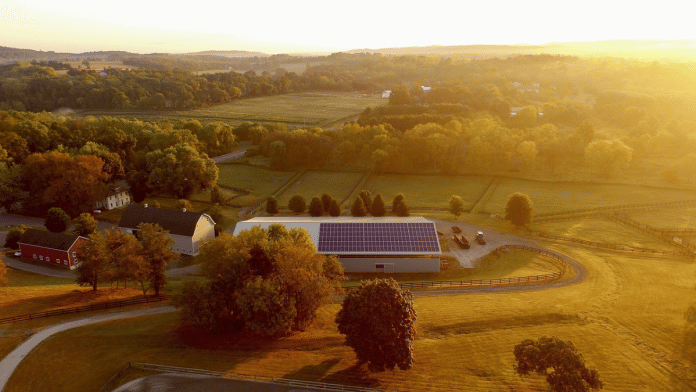Data and derived insights are increasingly being recognized and utilized as highly significant for agriculture and food systems. As part of the World Economic Forum’s AI4AI initiative, community stakeholders, through various roundtables and workshops, reiterated the importance of even a few high-value datasets to enabling innovation in the agriculture sector. A visualization of the assessment is shown in the diagram below; the thicker the lines, the stronger the dependence and linkage between the datasets (on the right) and the digital services enabled (on the left).

Robust data leads to greater provision of agriculture services. Image: PwC
The Food and Agriculture Organization forecasts that 90% of the demand for global food production by 2050, will be met by increasing the yield of arable land based on advances in agriculture research. Digital agriculture and innovations will be a part of this solution. Governments are uniquely positioned to steer this transformation due to their capacity to enact policies/laws, enable standard-setting and allocate resources. In leveraging open and other datasets and emerging technologies such as AI, several governments are making concerted efforts to evolve a responsible ecosystem in close collaboration with the private sector. These include initiatives in the following countries:
India
Drawing upon learnings from digital public infrastructure on identity and payments in India, the government of India is currently working on Agri Stack, a digital agriculture ecosystem to facilitate digital services for farmers. Recognizing the importance of quality and verified datasets, the initiative is developing three core registries on farmer, farmer land and crops. Some of the envisaged use cases are improved access to credit/financial services, efficient supply chain management, better market linkages and improved access to precise advisories on variables such as weather, optimal harvest times, crop and pesticide choices, among others.
Rajeev Chawla, Chief Knowledge Officer, Ministry of Agriculture, India states: “Agriculture is a complex ecosystem. Many stakeholders need to work collaboratively to address the challenges. Agri Stack is a set of data, policies/regulation, data exchange and a consent layer, intended to enable private sector stakeholders to access datasets and innovate. It addresses three foundational questions to begin with: Are you a farmer? Which land parcel do you own? Which crop do you grow?”
Supplementing the efforts of the national government, several state governments in India have open data agriculture portals as well as initiatives on data sharing.
United Arab Emirates
The Agriculture and Food Safety Authority of Abu Dhabi is in the process of implementing 50 AI solutions in the agricultural and food domain and is measuring more than 250 crucial indicators (such as those relating to soil, weather, crops) to act proactively, take corrective measures, and maximize the impact of data on the agriculture and food sector.
Challenges such as manual collection of data through surveys, limited collection of real-time data, fragmentation across several public/private sector entities and at times, the use of estimations rather than actual measurements for predictions, were highlighted as major hurdles in moving towards a truly digital system. Addressing these challenges, while supplementing these efforts with a focus on data and AI ethics, as well as forming robust public-private partnerships, is considered crucial.
“The envisaged outcomes of this initiative are an increase in productivity, improved internal efficiencies, optimized resource utilization (including soil, water, seeds, pesticides and labour), a reduction in negative environmental impact, improvement in livestock health, and an improved livelihood for farmers,” says Aisha Alshamsi, Director, Data and AI, Abu Dhabi Agriculture and Food Safety Authority, UAE.
Bangladesh
Agriculture is an important sector for Bangladesh, and the government has been actively promoting use of Fourth Industrial Revolution (4IR) technologies to enable data for digital transformation of the sector. From putting in place a national data governance framework to working collaboratively across several departments to create baseline registries for more than 30 datasets, the government has been working to develop a modular and interoperable Smart Agriculture Stack. By developing a digital public infrastructure, Bangladesh wants to ensure that the benefits of technology and innovation will lead to higher productivity, lower costs and increased farmer incomes.
Arushi Goel is Specialist, Data Policy and Blockchain, C4IR India, World Economic Forum
Yugank Bhardwaj is Director and Agtech Leader, PwC
Sowmya Komaravolu is Agtech Principal Consultant, PwC
This article was first published in World Economic Forum. You can read the article here.
Also read: We lose 675 billion work hours to extreme heat each year. It’s time for companies to adapt






